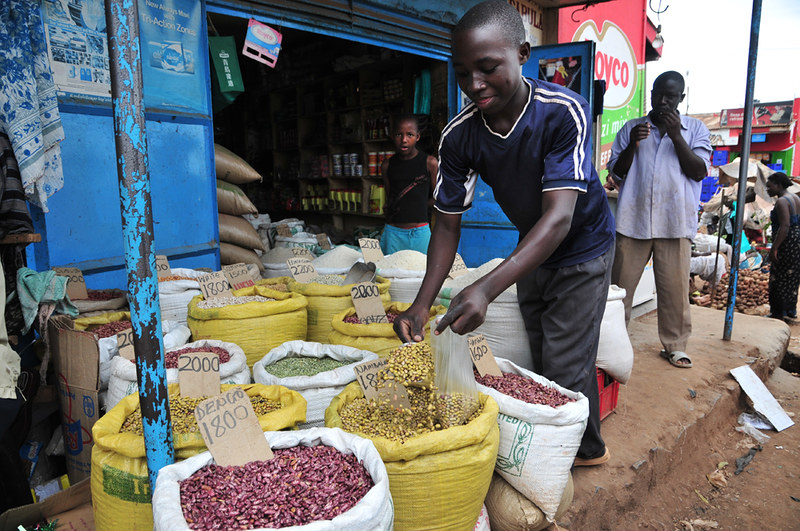Rising consumer goods prices in Uganda have led to unrest across the country, adversely affecting local businesses and citizens’ livelihoods. On July 25, 2023, security forces in Uganda employed tear gas and other measures to suppress protests against soaring fuel prices in three towns, resulting in the arrest of over forty individuals. TV footage of the unrest depicted tear gas clouds from police-fired canisters and security personnel, including police and soldiers, pursuing stone-throwing protesters and wielding batons.
In Jinja, an industrial city along Lake Victoria’s shores in southeastern Uganda, demonstrators set tires on fire and obstructed roads before being dispersed by the police using tear gas, according to witnesses. Police spokesperson James Mubi contended, “It wasn’t a protest; the youths were, instead, robbing others, damaging properties, blocking roads, smashing vehicles, and burning tires.” Similar incidents unfolded in Kamuli and Luuka to the north of Jinja. A total of forty-one protesters were detained and are facing charges of inciting violence, robbery, malicious damage, participating in an unlawful assembly, and being a public nuisance, as stated by a police spokesperson. Ugandan police spokesperson Fred Enanga asserted that the demonstrators “intend to exploit fear to promote violence, potentially leading to a cycle of violence across the country if not curtailed.”
Intrastate conflicts, or conflicts within a state, are prevalent in the modern era. Many intrastate conflicts commence as movements seeking social, political, and economic change through nonviolent means and can be resolved through non-routine and non-violent political approaches. These conflicts may stem from economic, resource-related, or, in this instance, identity-related factors. The people of Uganda are grappling with disorder and are striving for greater control over decisions affecting their lives and well-being. The underlying issue of their exclusion from political power must be addressed by their government to forestall further eruptions of violence.
The cost of fuel in Uganda has nearly doubled since the beginning of the year. Many citizens have called for tax reductions to offset the impacts of inflation, but Ugandan President Yoweri Museveni has declined, attributing high prices for items such as cooking oil, fuel, and wheat to the conflict in Ukraine and the COVID-19 pandemic. This marked the second instance in a month where demonstrators took to the streets to express their frustration over the escalating cost of living in a country whose economy has been severely affected by recent global events. For a week, messages have circulated on social media urging Ugandans to stay home and refrain from paying taxes in an effort to compel the government to address rising prices. However, Museveni has contended that cutting taxes or implementing subsidies to address the crisis would exacerbate the situation by providing people with ‘artificial comfort.’
In the end, economic issues are likely to continue to have transnational repercussions. The conflict in Uganda has the potential to escalate further if these issues are not comprehensively addressed, as international circumstances may continue to exacerbate the situation. The Ugandan government must correctly identify and address the needs of its citizens and work towards de-escalating the conflict. Once de-escalation is achieved, negotiations, settlement, and the rebuilding of peace within the country can begin.
Let Us Build Your Online Success!
We are the experts in creating visually stunning and functional websites. With reliable hosting and exceptional customer support, we bring your vision to life. Join hundreds of happy clients who trust us!
Get Started Now📞 Call/WhatsApp: +256 207 800 192

